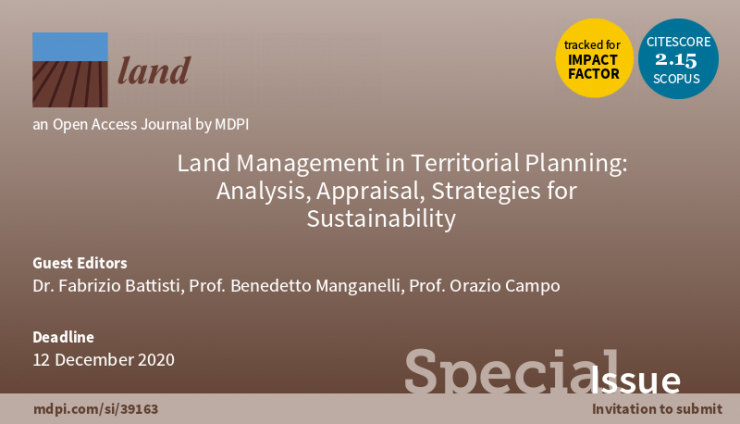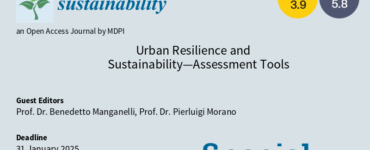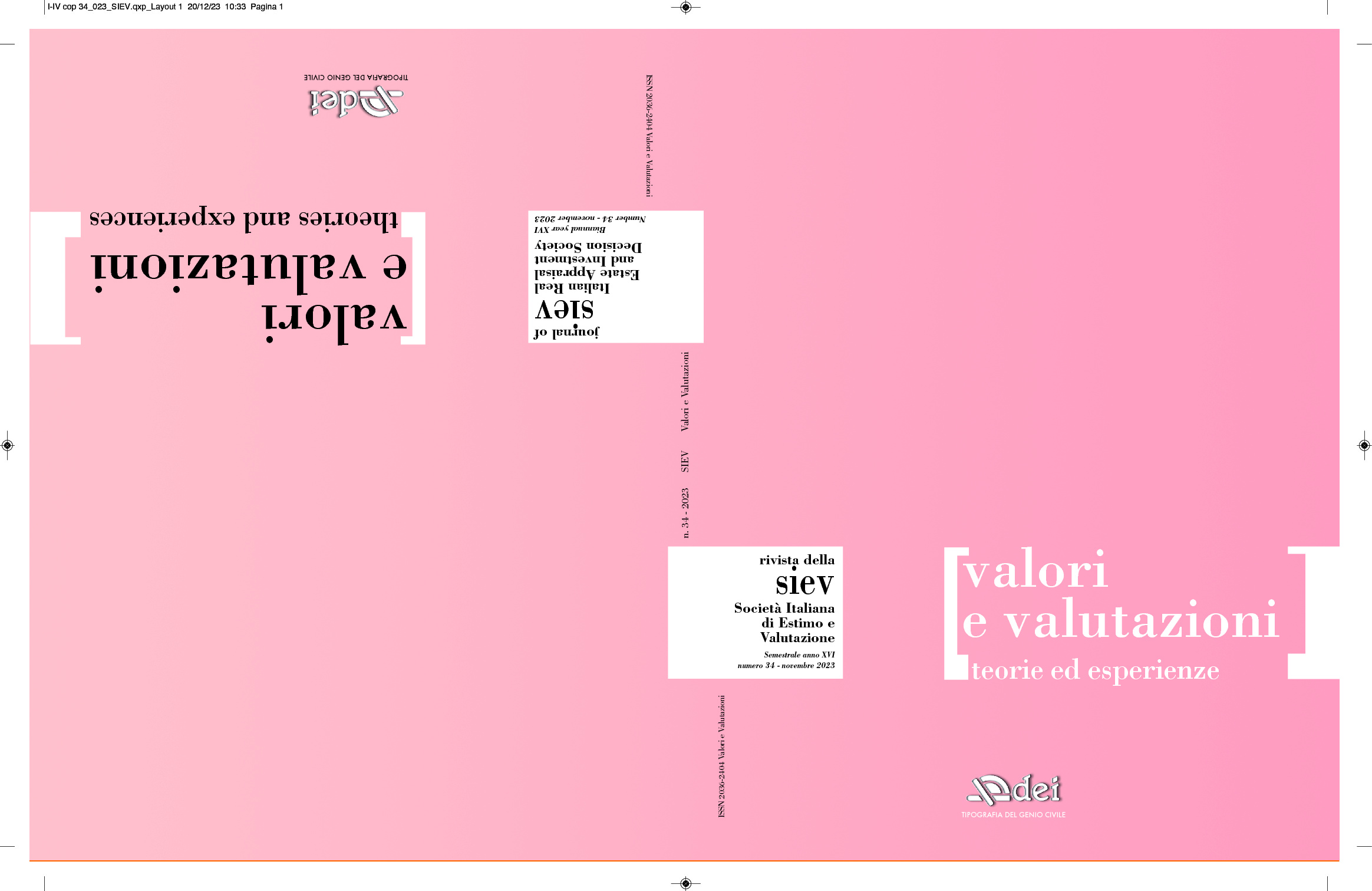A special issue of Land (ISSN 2073-445X). This special issue belongs to the section “Socio-Economic and Political Aspects of Contemporary and Historical Land Issues“.
Deadline for manuscript submissions: 12 December 2020.
Dear Colleagues,
Land is increasingly becoming a precious and limited resource. In the face of the constant growth of the world’s population (according to a recent United Nations report “World Population Prospects 2019: Highlights”, the world’s population is expected to increase by 2 billion persons in the next 30 years, from 7.7 billion currently to 9.7 billion in 2050 (+26%), and further to 10.9 billion in 2100 (+42%)), during the land planning process, it is now even more necessary to think about strategies for the sustainable use of land in natural, agricultural, and urban contexts. Sustainability in land management must be sought through: i) the protection of land by looking after its role in the ecosystem and environment, for natural land; ii) the implementation of kinds of use that optimize its yield while preserving its fertility, for agricultural land; and iii) the remediation of degraded areas, the development of infrastructure, improvement of the urban landscape’s quality, and an appropriate relationship between urban fabrics and the countryside, for urban land. Therefore, it is crucial that decisions be made on the provision of territorial governance tools and strategies for conservation and the sustainable use of land in order to correctly use this resource. The purpose of this Special Issue is to invite academics and researchers to submit proposals for papers that deal with the sustainable management of natural, agricultural, and urban land. Potential topics include, but are not limited to:
- evaluation methods and techniques to support choices in land planning;
- criteria and indicators for sustainability in land planning processes;
- strategies for enhancing the relationship between urban areas and agricultural and/or natural areas;
- innovative models for the environmental remediation of compromised areas;
- innovative tools for land planning and management;
- the protection, management, and safeguarding of natural areas;
- strategies for the transformation of degraded urban areas; and
- sustainable agriculture.
Dr. Fabrizio Battisti
Prof. Benedetto Manganelli
Prof. Orazio Campo
Guest Editors











Add comment